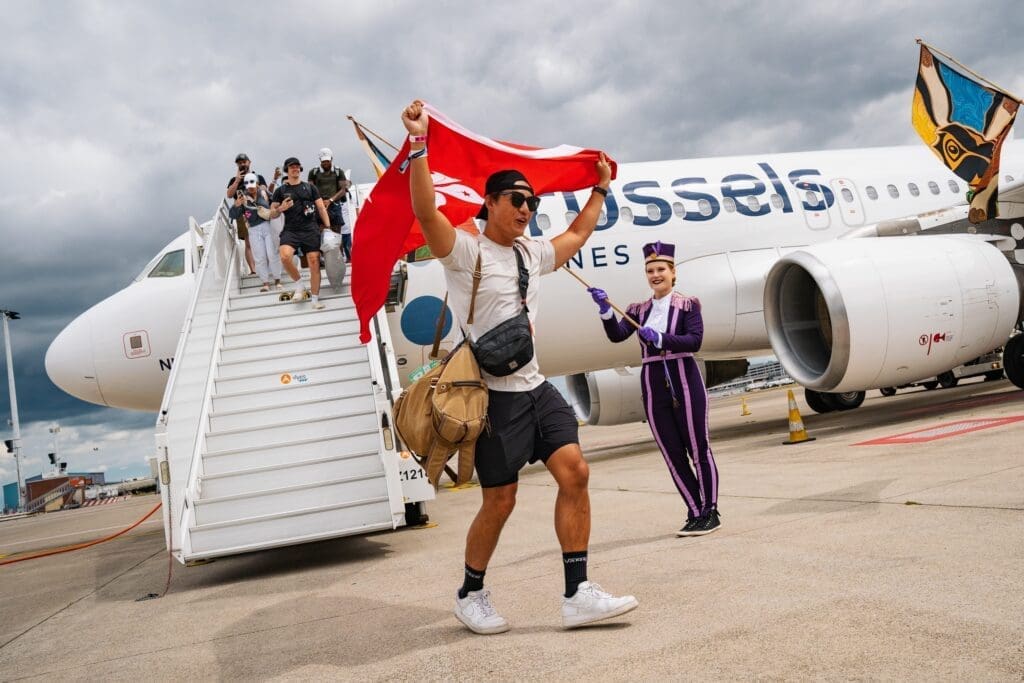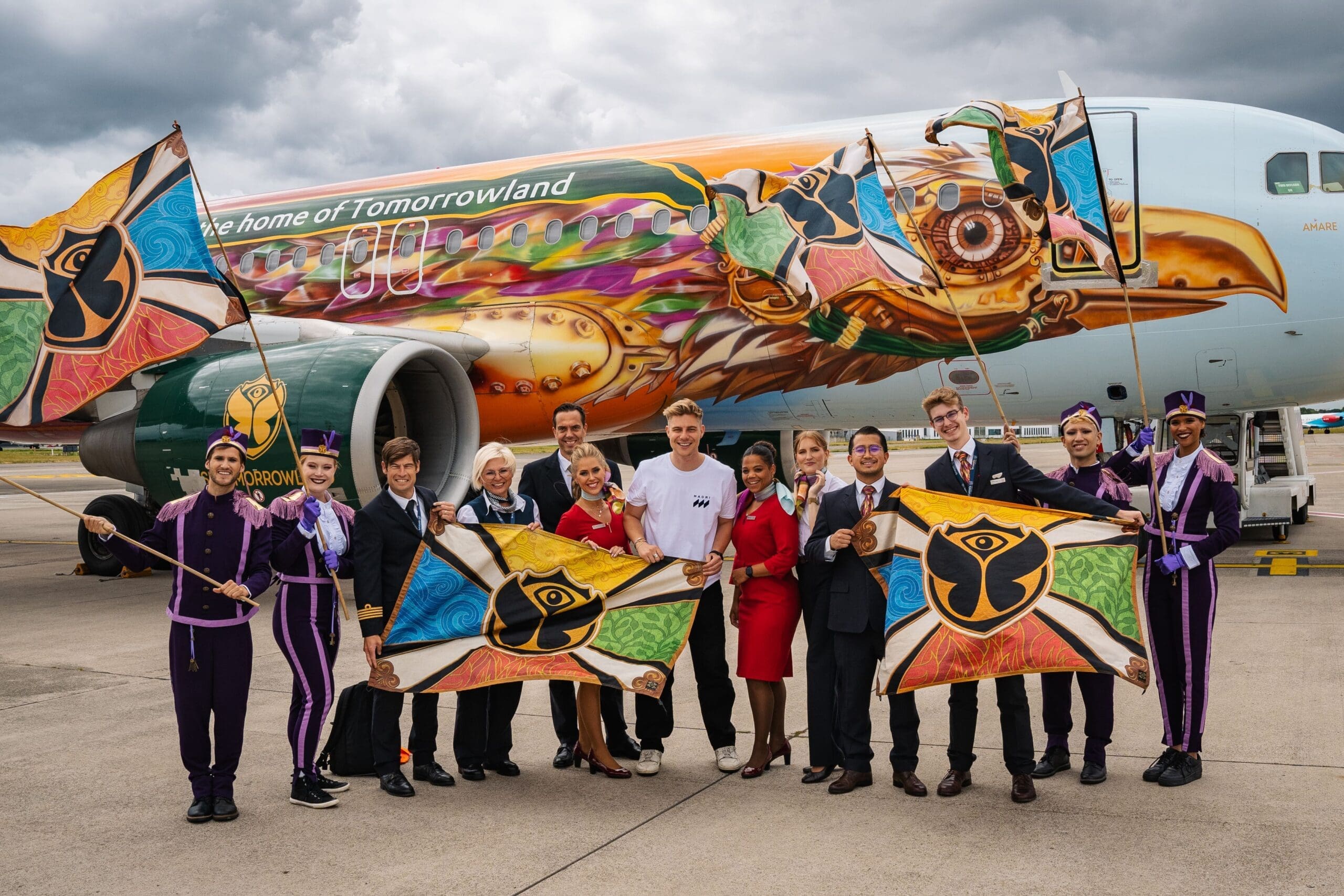Uniting people from across the globe has always been a fundamental part of Tomorrowland and for over 20 years, people have traveled to meet in the town of Boom, Belgium as it transforms into a magical place of celebration. This has long been the role of Global Journey, the official travel program of the festival: an initiative that seeks to take care of a festival-goer’s journey from start to finish, bringing people together along the way with planes, trains and buses.
Along with this pillar of togetherness, Tomorrowland also fosters a dedication to the future of our planet, which raises a question: how can travel be compatible with caring for the earth? The answer is a modal shift – a change from one form of transportation to another that is kinder on the planet. The Global Journey will be undertaking this shift in pursuit of a better tomorrow. Currently, the transport available consists of 30% trains, 26% buses and 44% planes. In the coming years, a focus will be placed on alternative transport such as night trains and buses that will allow longer journeys to be undertaken in a more sustainable manner. The commitment will be alternative methods within a range of 6 hours to the festival, which will represent a 12% Co2 reduction.
For those that travel from even further away, planes are often the only option. Whilst flights may not seem the most compatible with an eco-conscious approach, there is way that takes a step towards travel that’s kinder on our planet: sustainable aviation fuel (SAF). The most common form of this is HEFA, which is derived from used cooking oil. As no new raw materials are required in production, it evolves from the original linear process to a circular process and has a CO2 reduction of 80%, on average.

In cooperation with Brussels Airlines, who uses HEFA, Tomorrowland will be applying a fixed amount of SAF to reduce flight-related carbon emissions by 20% as standard in the Global Journey package: considering the travel industry has a goal of implementing 2% SAF in 2025, this is significantly higher than industry standards. The remaining % will be offset through chosen projects, with a focus on the local area. Along with this initiative, 100% SAF will also be implemented across Tomorrowland’s party flights.
Emissions from the Global Journey packages currently amount to 3826 tonnes of CO2 and efforts in 2024 will reduce this by 916 tonnes, but the efforts don’t stop there. By 2030, the aim is to reduce flight-related carbon emissions by 30% across all flights, as well as a constant commitment to adapt to the ever-changing world of sustainability. For example from 2028, the aim is to use e-kerosene, which is based on the combination of hydrogen and CO2. This will allow up to 99% CO2 reduction from the flights deployed with it.
Unite forever is in the festival’s DNA, but so is Love Tomorrow, and a dedication to eco-conscious options is the start of a journey towards a community that protects the earth.
